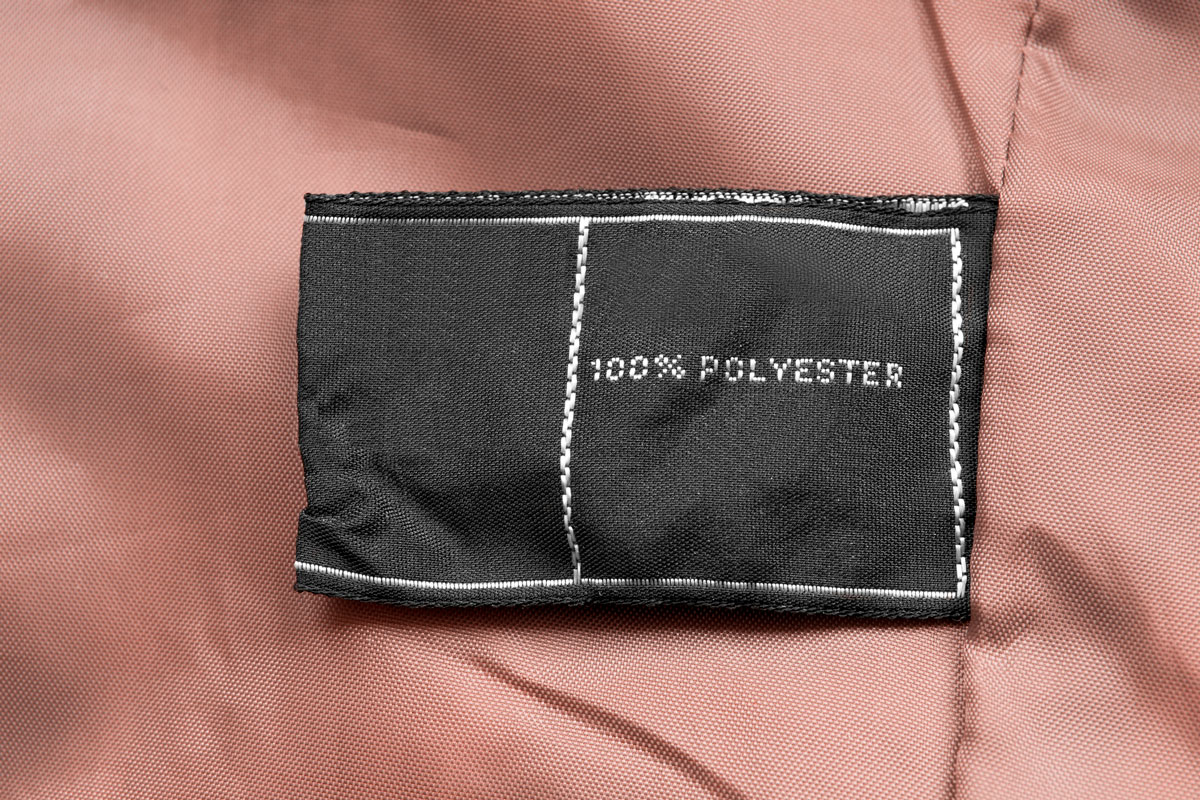Imagine tossing your polyester bedsheets into the washing machine. Halfway through the cycle, you realize you forgot to check if your sheets are safe from shrinkage. Should you worry about polyester shrinking in the washer or dryer? We'll answer that with the information we gathered.
Polyester doesn't shrink easily in the washer or dryer. Since its fibers are synthetic, it's not as absorbent or prone to shrinkage like cotton or linen. Polyester fibers don't relax easily when wet or heated, holding its shape. Normally polyester doesn't shrink, but it might if temperatures are high enough.
Not all polyester fabrics are completely shrink-resistant. Cotton-linen blends and polyester wool blends are more prone to shrinkage compared to 100% polyester. Having said this, there's so much to learn about how polyester behaves. For more information, keep reading!

What Happens If You Put Polyester in the Dryer Or Washer?
In the dryer, polyester fiber will stay relatively the same shape and size. You just need to be careful about the temperature settings.
If you blast the polyester under heat that is too high, you are going to risk wrinkling the fabric. And yes, this can make the fabric susceptible to shrinking as well.
When put through the wash, polyester absorbs water to an extent, but its fibers do not completely retain it.
As opposed to 100% polyester, which is made of purely synthetic fiber, cotton-polyester, linen-polyester, or wool-polyester blends are a mix of both natural and synthetic fibers.
Polyester fibers are short. So, they can expand and contract with ease without changing the overall shape of the fabric. Because of this, the sturdy synthetic fibers of polyester protect the fabric from warping too much.
The natural fibers mixed into polyester blends have longer yarns that easily absorb water. These fibers relax when put under tension, such as the heat and tumbling of a dryer. This causes the yarns to become shorter, resulting in shrinkage.
We sometimes add affiliate links and content that was curated and created by our team with the help of advanced ai tools to help showcase the best design styles.

At What Temperature Does Polyester Shrink?
Polyester can endure heat up to 140°F. At this point, the fabric will start to shrink. Any temperature setting higher than this, and your washer or dryer will likely change the fabric's integrity.
So, running a wash with lukewarm or cool to cold water will not affect polyester fabric. But it is still not completely invincible to higher heat.
You can shrink polyester by exposing it to very high heat. Leaving it to soak in hot water that is over 140°F or leaving it in the dryer for too long will effectively shrink, warp, or even melt polyester fabric.
So, running polyester fabric through the dryer will not typically affect it, if it's taken out as soon as the cycle is done. Problems start when you leave the fabric in for more time than necessary.
Knowing how to shrink polyester sometimes comes in handy. For example, you might have a pair of pants that are a tad too big for you.
You could subject your polyester pants to the heat of the washer machine and dryer, or even a hot iron. Even so, the fabric will only shrink by a fraction.
Ways To Avoid Shrinking Polyester

Be mindful about the composition of fabric fibers. This will determine whether it will shrink in the washer or dryer. Natural fibers are easier to shrink than man-made or synthetic fibers.
The first step to making sure you will not shrink, warp, or wrinkle polyester is to check the fabric specifications. Clothing, blankets, or sheets usually come with a tag that contains care instructions and the fabric name.
You can simply follow the care instructions of your fabric. Washing it in cold water and cool drying (or even spin drying) is a good way to maintain the fabric's integrity.
Some fabrics will require you to hand wash them instead of using a machine. This is because drying and tumbling effect the fibers.
With your washing machine, you can use virtually any setting for polyester as long as the water temperature is not too hot. With your dryer, make sure you use the correct settings as well. If you are going to iron polyester, check your iron settings.
Click here to see PurSteam Steam Iron on Amazon
Most irons have a setting specifically for polyester, so it is best to use that one. Ironing with too little heat will not make much of a difference, while too much heat can melt or burn the fabric.
The great thing about polyester is that synthetic fabrics are also wrinkle-resistant, so you will not have to iron them too much anyway. Still, it is useful to keep these tips in mind to better care for your fabric.
Other Types of Synthetic Fabric

What are you to do if you do not know what kind of fabric you are working with? Well, one thing you can do is test to see how it behaves with water. Synthetic fabrics like polyester have low absorption and are not as breathable.
Although fabric blends are tougher to identify, there is more to them than just polyester. Other examples of synthetic fabrics include nylon, acrylic, and spandex. Like polyester, these fabrics rarely shrink the same way that fabrics made of natural fibers do.
How To Unshrink Fabric - What To Do?

After we have discussed what happens to your fabric in the washer and dryer, you might wonder how to unshrink fabric if it shrinks in the wash.
Do not worry, you can still try to salvage your fabric one way or another and reverse the effects of the shrinkage. Prevention is better than cure, so you might find this task to be a little difficult.
The following tips are useful for fabrics with natural fibers like wool and silk, but regardless, it is still worth knowing. Remember, fabric shrinks when its yarns tighten due to strain and tension. So, you will need to reverse this effect by loosening the yarns.
- In lukewarm water, soak the shrunken fabric for up to 30 minutes. You will want to loosen the fibers as much as possible. Some sources recommend mixing in baby shampoo to help in this process.
- Once you take the fabric out, you will want to treat it delicately. Do not toss it into the dryer or wring the water out since this can cause warping.
- Instead, lay it on a flat towel and use the towel to squeeze and absorb the water out. Afterward, leave the fabric to air dry.
This method works quite well for most fabrics, including both natural fabrics and polyester. Just keep in mind to treat the fabric delicately during the whole process.
Another method that works well for unshrinking polyester and polyester blends is by spritzing the fabric with lukewarm water until it is damp.
Once wet, but not too soaked, you can stretch the fabric out with your hands. Like the first method, leave the fabric to air dry afterward. Reserve this method for sturdier or thicker blends, like denim and polyester.
For warped or wrinkled fabric, you can remedy it through ironing or by using a fabric spray.
Click here to see Downy Wrinkle Releaser Fabric Spray on Amazon
Wrapping Things Up

Polyester does not shrink in the washer or dryer under standard settings, but it's best to adjust your machine settings to suit the fabric you are cleaning. Always check the label on your fabrics to ensure that you are giving them proper care and maintenance.
When it comes down to it, you can always try to unshrink your fabric using the methods we recommended in this article. Even then, the amount that polyester would shrink isn't too significant.
We hope you found this article helpful! Before you go, you might want to check out these posts:


